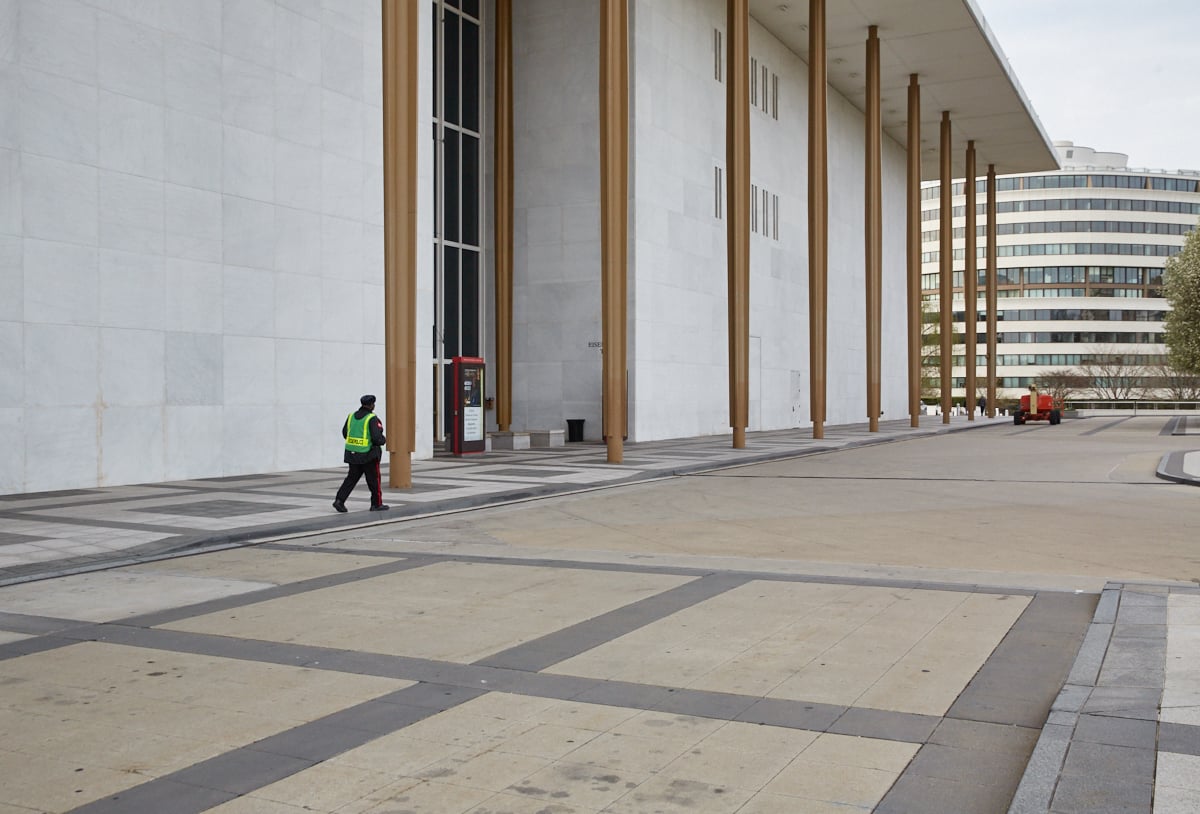Kennedy Center stagehands voted to authorize a strike today, and say they will do so if Kennedy Center management doesn’t meet demands by the end of the week. Members of the International Alliance of Theatrical Stage Employees (IATSE) Local 22 voted unanimously in favor of the hardball bargaining move, which gives the union the authority to call a strike and for members and supporters to set up a picket line.
It’s a serious move, but it doesn’t mean a strike is inevitable or even likely. Still, the union says such a measure hasn’t been taken for decades, and if a strike does happen, it could lead to the cancellation or rescheduling of the venue’s upcoming run of Hadestown, currently slated for October 13-31. A spokesperson for the union says the Kennedy Center is trying to use the pandemic as an excuse to rewrite the workers’ contracts. Though stage workers agreed to a ten percent salary cut for the coming year, organizers say Kennedy Center management is pushing for a 40 percent cut, in addition to cutting jobs and imposing other “draconian cuts.”
“A strike can be avoided and Hadestown can take the stage, but that’s up to Kennedy Center’s managers,” IATSE Local 22 President David McIntyre said in a press release. “We’ve been more than willing to tighten our belts and help the Kennedy Center during this difficult time for the arts. However, the Kennedy Center’s management team has decided to use the pandemic as an excuse to gut our contract while taking millions in federal relief dollars just as large audiences are scheduled to return.”
Update: The Kennedy Center released a response yesterday. Here is part of the statement:
“After more than a year of discussions and over 16 hours of talks yesterday, the Kennedy Center is disappointed that negotiations with its stagehands, IATSE Local 22, have now stalled over a single issue. Despite the Union’s claims, at the time the Union abandoned the negotiations, Center management had offered a multi-year contract which included increases in wages and benefits. The parties had already reached agreement on COVID-19 protocols and various other issues of employment. The only outstanding issue was that the parties’ agreement include the Union’s demand to be the exclusive staff provider for work that traditionally they have not performed. “


















